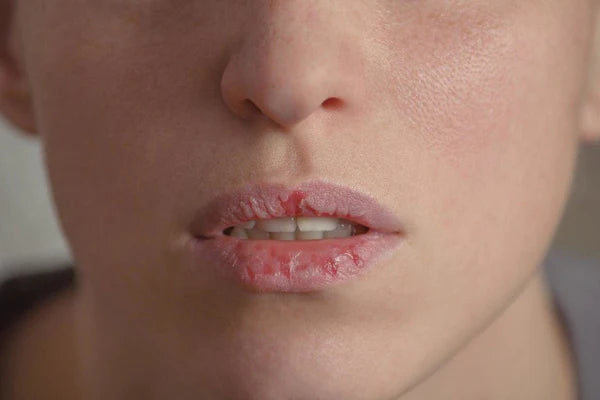Dry mouth is a daily oral problem that will cause discomfort when you swallow, eat or speak. It indicates that you are not producing enough saliva to moisten your mouth sufficiently. Most of the time, dry mouth is a side effect of medications prescribed to treat any oral disease. It is therefore very important to seek professional help from a health care professional or your dentist if you are experiencing dry mouth problems.
Here is a guide to help you understand the causes of dry mouth.
What is dry mouth?
The sensation of dry mouth is called xerostomia or dry mouth syndrome. It does not necessarily appear after a decrease in saliva secretion, or hyposialia, or even an absence of saliva secretion called asialia. Depending on its causes, it can appear in isolation or in association (with ocular or vaginal dryness for example).
Signs of dry mouth
- Here are the signs that indicate that you have dry mouth:
- You have a lack of saliva and are therefore increasingly thirsty;
- You have the sensation of having a thick, pasty tongue and a dry, sticky, irritated throat;
- Your lips are particularly dry, chapped and cracked ;
- You have cracks in the corners of your mouth that are particularly painful.
The main causes of dry mouth
There are a number of mechanisms involved in the decrease of saliva production. It is enough to know them to know what to do in case of dry mouth sensation.
Here are the main causes of dry mouth:
-
Water intake: insufficient water intake will not allow you to hydrate your mouth properly.
- Salivary gland problems: a more or less important destruction of the salivary glands or disturbance in their functioning will cause you dry mouth problems.
- Taking certain medications: medications such as antihistamines, anxiolytics, antidepressants and neuroleptics, diuretics, certain analgesics, antiparkinsonians, antispasmodics, antihypertensives, anticancer chemotherapies...).
- Chronic diseases: Gougerot-Sjögren syndrome is for example a disease responsible for a dryness of the eyes, the mouth and the genital mucous membranes. It occurs mainly in women between the ages of 40 and 60, either alone or in association with other autoimmune diseases (rheumatoid arthritis, systemic lupus erythematosus, etc.).
Possible complications of dry mouth
Dry mouth is mostly benign. However, it can have a relative impact on your quality of life because the lack of saliva will often cause oropharyngeal problems.
-
constant discomfort: you will feel discomfort or difficulty in swallowing or speaking.
-
pain: you will experience more or less intense pain in the throat.
- Difficulty in eating: you will find it particularly difficult to eat properly.
- Bad breath: a bad brushing of the teeth or the fact of not brushing the teeth will have as repercussion the fact that your mouth will miss hydration.
All these complications linked to the problem of dry mouth will favor the deposit of dental plaque which will increase the risk of gingivitis but also that of dental caries and other infections of the mouth like for example oral mycosis. You must therefore think about seeing your dentist to identify the cause and find a solution to this problem as soon as possible.
Solutions for dry mouth
-
Drink plenty of water: It is important to drink water that is neither too cold nor too hot throughout the day and night, and always take a bottle of water with you.
-
Drink only water: You should know that drinks with sugar or carbonated beverages are not recommended because they will dry out your mouth. It is therefore preferable to drink water.
-
Chew gum: Consuming sugar-free gum or sucking sugar-free candy to stimulate salivary flow is not recommended as you will become too thirsty.
- Choose a mouthwash without alcohol: if you are used to using a mouthwash, you must be careful that it does not contain any alcohol at all because it is not recommended in case of dry mouth.
You can also brush your teeth with a toothpaste in tube with mint from Y-Brush. This toothpaste has a fluoride content of 1450 ppm, which is the dosage recommended by the French Union of Oral Health. It allows to reinforce effectively the enamel of the teeth, to fight against the formation of dental caries, to fight the dental plaque and to act against the bacteria. Its transparent and fluid paste allows a more effective and fast washing of brush.
We hope this guide has helped you understand what dry mouth is and what the signs are that can help you recognize it. It is also important to understand the causes and main complications of dry mouth. In any case, it is important to pay attention to all the solutions that can remedy the problem of dry mouth.



